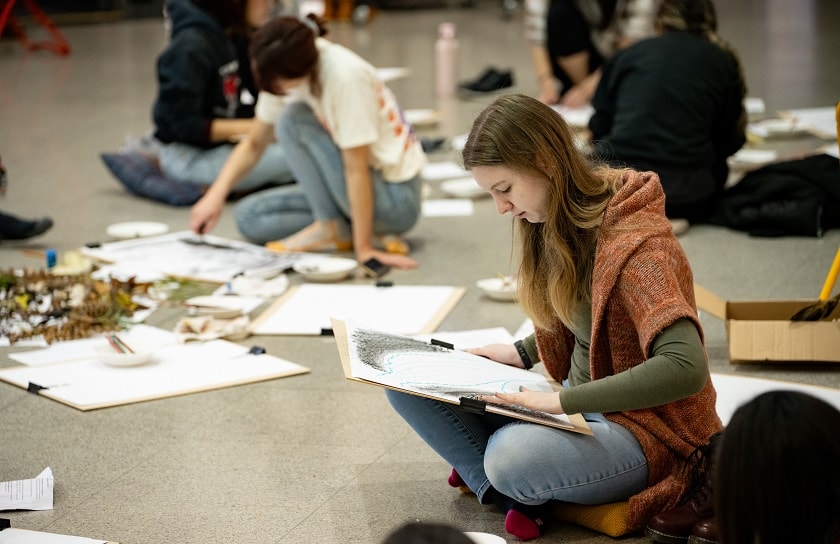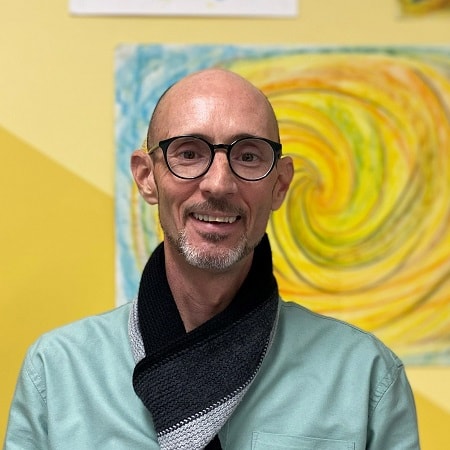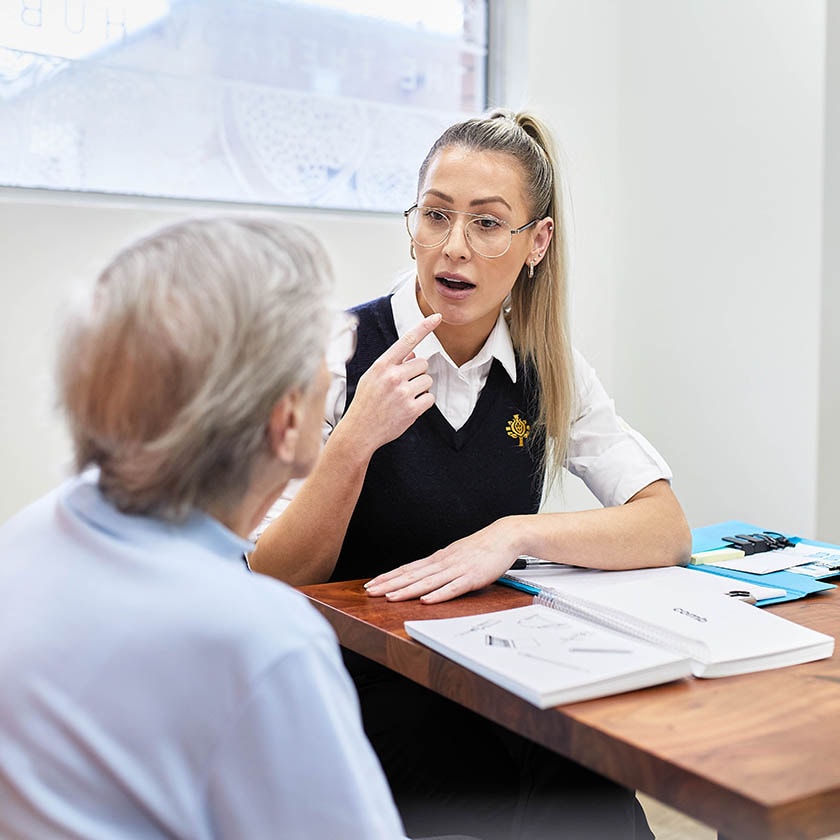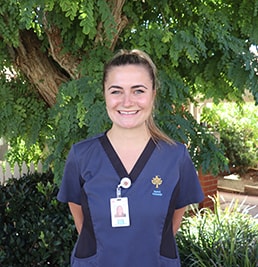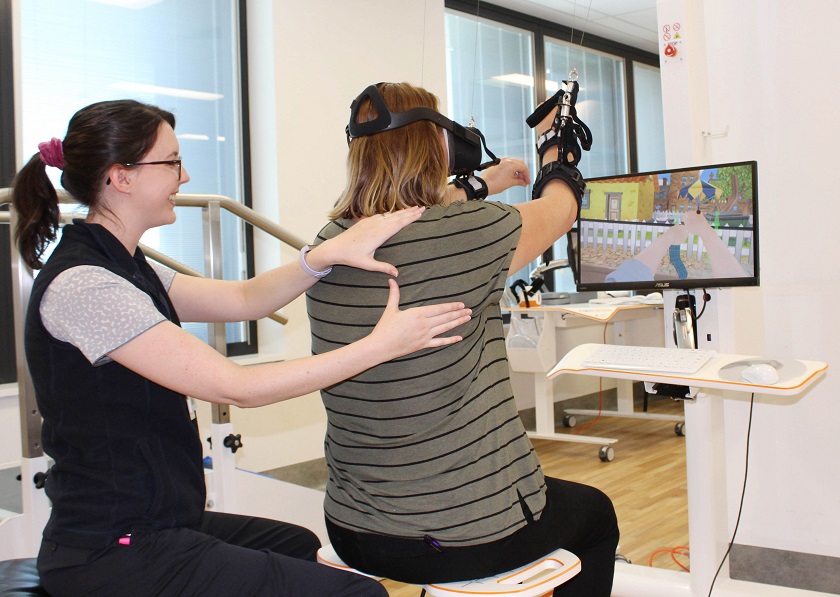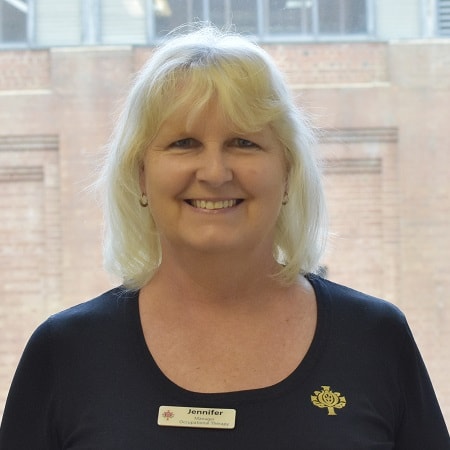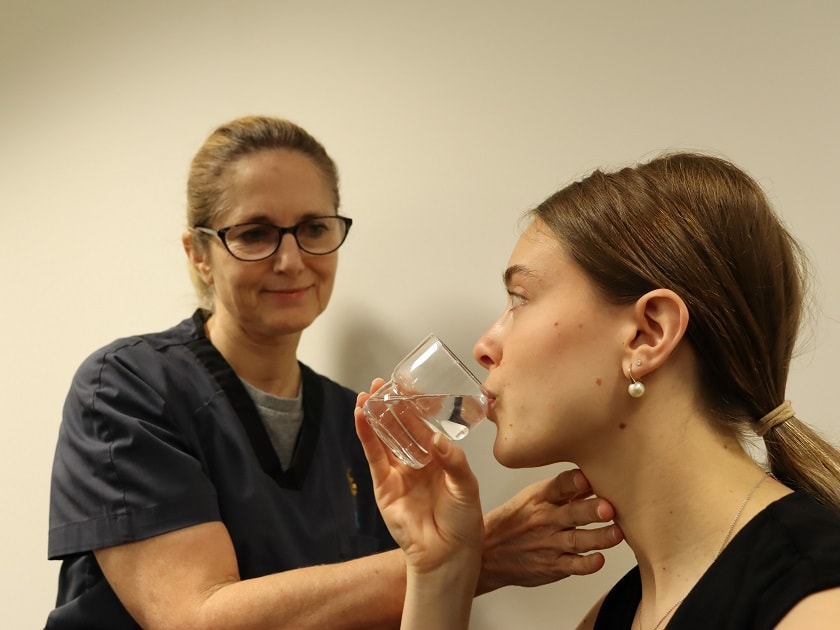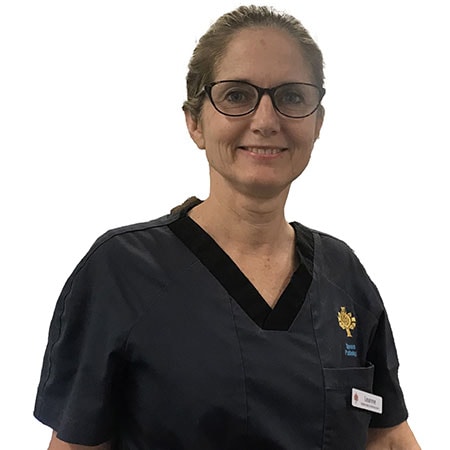St John of God Health Care Acting Group Coordinator, Arts and Health Paul Davis, rolled up his artistic sleeves and spoke with students at the sessions. Paul, a registered art therapist, shares his reflections on the immersive experience that he believes will have a lasting impression on our next crop of occupational therapy clinicians.
The workshop, ‘Disability - Human Centeredness through Art’, was facilitated in the foyer of the John Curtin Gallery and was designed to help students understand how art making can enhance clinical interventions in their future careers as OTs.
We know that providing holistic care (caring for the whole person – their mind, body and spirit) is the best form of care, and creative arts therapy has such an important role to play. It was a pleasure and a privilege to be part of this pilot project and share the value and importance that St John of God Health Care places on the intersection between the arts and health.
Feedback from the students was incredibly encouraging. I left the workshops feeling like we had made an extremely meaningful contribution to the future of health care.
Key learnings for the students included:
- “The day showcased the capacity for art to heal, nurture and uplift.”
- “Hearing from passionate people and evidence-based stories is a really powerful incentive to pursue this course of therapy.”
- “I am inspired to follow up on the resources shared today to be able to incorporate art as therapy into my own practice as an OT.”
Workshop activities and presenters
The lead facilitator, Lyndsay Humphries, a visual artist and arts worker, talked of her experience supporting people with a disability to engage in art making for skills development, self-expression, social connection and emotional wellbeing.
I loved Lyndsay’s explanations of the positive impact that art can have on a person’s sense of self-worth:
“The experience empowers them to make their own choices, set their own goals and achieve success on their own terms.”
“In art we use all our senses and our head, heart and hands together. We play by throwing our whole physical and emotional selves into things, finding out what we can do and what can be achieved. What we can’t do is irrelevant. Art is a process of never-ending discovery and enquiry, a dialogue that’s open-ended and experimental in nature, and that’s part of its magic!”
Lyndsay facilitated a series of art activities where students experienced drawing with their feet and elbows, making marks to music and using art materials in unusual ways for different artistic effect.
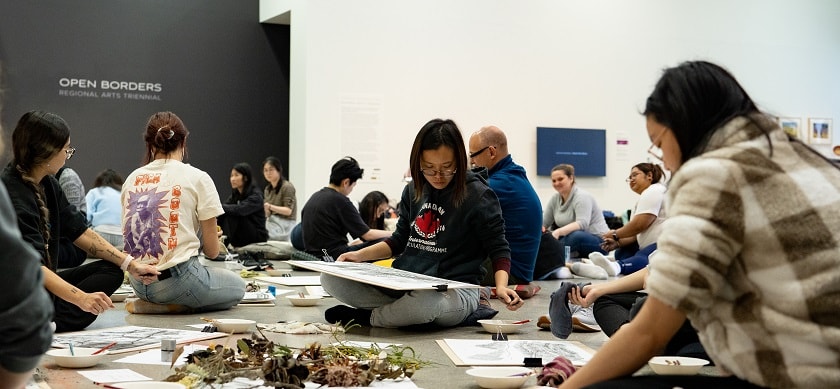
Ellie Glen, founder and director of Art Jam WA shared her lived experience of how art making helped her manage symptoms of anxiety, depression and attention-deficit/hyperactivity disorder. Ellie talked about her three types of art making processes and showed examples:
“Some days I can come up with a million crazy ideas, and scrawl them down in a mad rush, and usually none of it looks any good. I call this process Play. Some days I have no ideas, but have the patience to sit and mindfully add some tiny details to a piece. I call this process Reflection. Other days I have something big that needs to come out. I call this Catharsis.”
I spoke with students about St John of God Health Care’s dedication to the arts and health, and how this is reflected in the numerous art and music therapists working in our hospitals and services around Australia. I referred to the latest neuroscience research that is fuelling the evidence base for art therapy and shared some valuable resources. Of particular importance was explaining the difference between psychotherapeutic art therapy provided by a qualified and registered art therapist, and the numerous inherent benefits of engaging in “art as therapy.”
I hope, and am quietly confident based on the positive feedback so far, that many of the students will incorporate art as therapy into their practice when they become qualified OTs. If these workshops are an indication, the future of holistic health care looks bright.
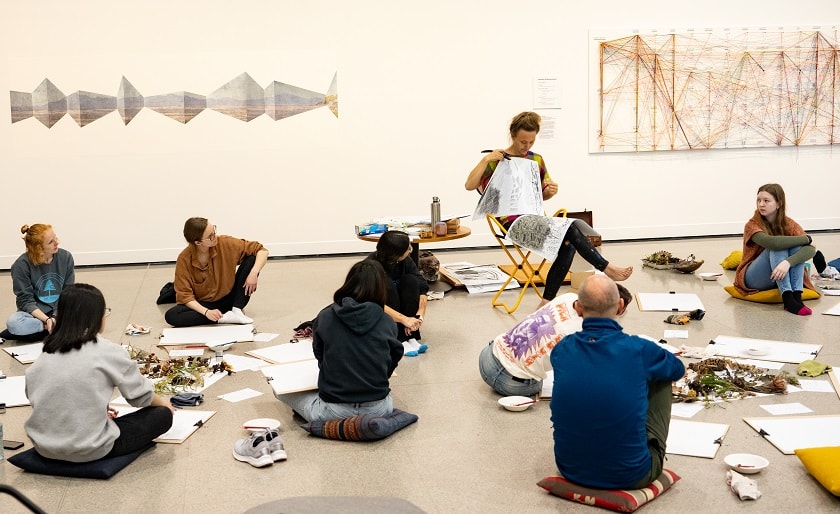
Photos credit: Brad Coleman, John Curtin Gallery, Curtin University

